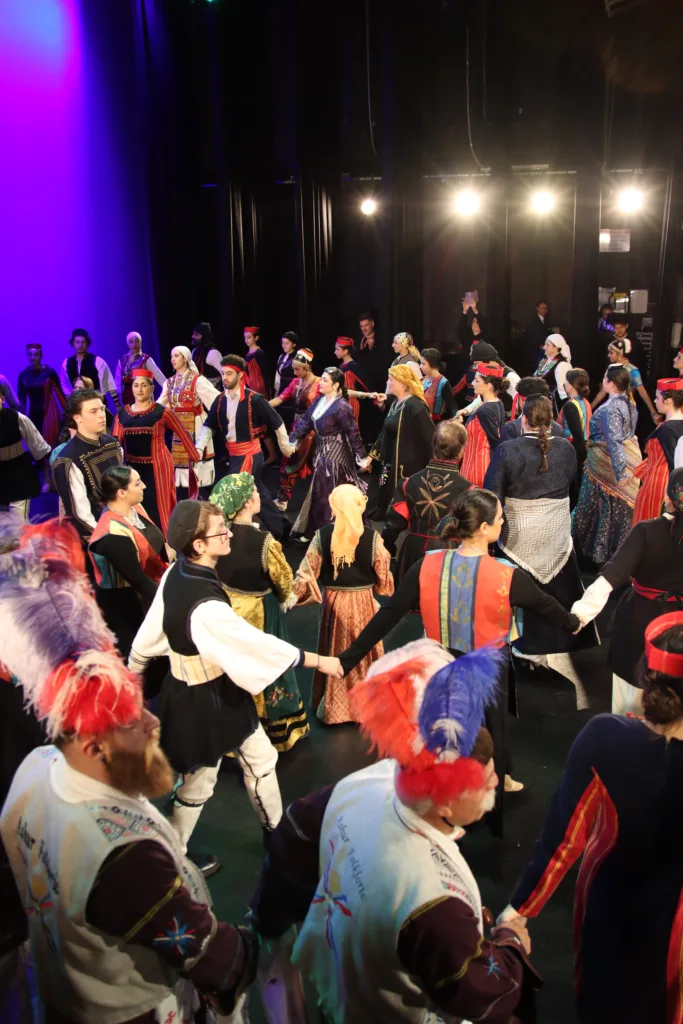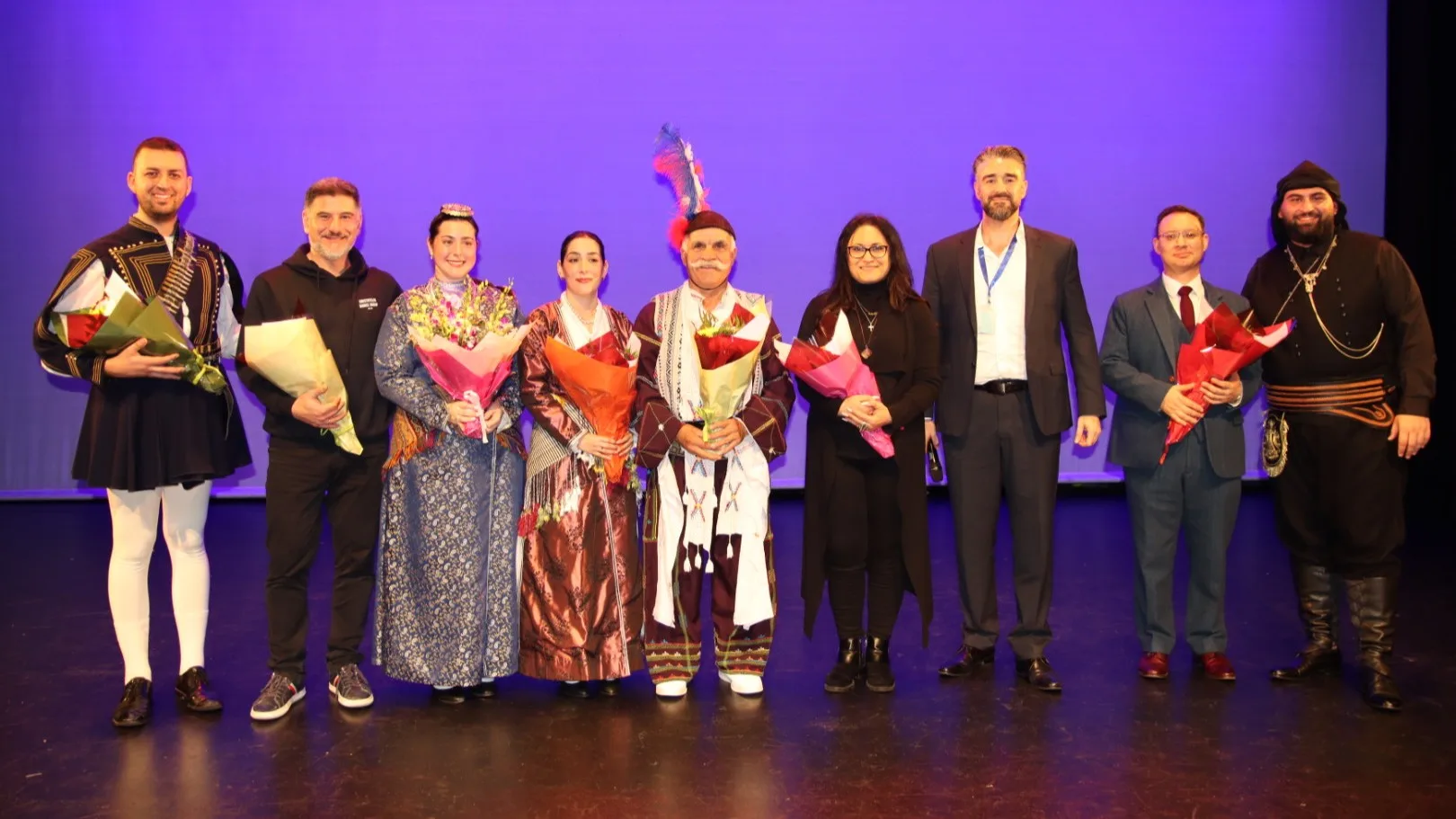An audience that filled every seat at the Clocktower Centre on 29 June was treated to Alexander’s Journey, a unique theatrical presentation that combined historical narrative with intercultural performance.
Among the many in attendance were His Grace Bishop Evmenios of Chora and other prominent figures from Melbourne’s Hellenic and broader multicultural communities.
Written by author and poet Dean Kalimniou and presented by the Pan-Macedonian Association of Melbourne, the production was inspired, directed and produced by Association President Peter Stefanidis.
Backed by the Multicultural Commission of Victoria, it aimed to explore not only the legacy of Alexander the Great, but also the ways in which different cultures intersected across time and geography. The result was a carefully constructed dramatic oratorio that pushed beyond conventional storytelling.
What set Alexander’s Journey apart was its breadth. Spoken monologues, choreographed dance, poetic narration, historical dramatization, and music were seamlessly integrated into a performance that was both intellectually stimulating and emotionally charged. Stefanidis’ audiovisual direction brought a visual clarity to the work, enhancing Kalimniou’s layered and lyrical script without overwhelming it.
The narrative unfolded through a series of monologues voiced by historical witnesses—figures such as Aristotle, Babylonian scribes, Indian kings, and Alexander’s mother, Olympias. Rather than following a linear biographical account, the structure allowed for a wide-ranging perspective on Alexander’s character and deeds. What emerged was a portrait of a figure motivated not simply by conquest, but by an ideal of civilisational encounter—one who challenged boundaries, both physical and philosophical.

A particularly strong feature of the event was the inclusion of traditional dance. Groups representing the Armenian, Assyrian, Indian, Pontic, Pan-Macedonian and Florinian (Aristotelis) communities performed throughout the show. Their presence grounded the work in lived cultural practice. The collective finale, set to Μακεδονία Ξακουστή, brought the audience to its feet in a prolonged ovation.
Still, it was a quiet moment that seemed to leave the most lasting impression. In a gesture that caught many by surprise, Kalimniou took up a Chinese erhu and performed Μακεδονία Ξακουστή. The unlikely pairing of a Greek anthem with an ancient Chinese instrument encapsulated the broader message of the performance: cultural identity is not diluted through exchange, but enriched.
Speaking after the show, Mr Stefanidis reflected on the collaborative nature of the production.
“We wanted to offer not just a narrative about Alexander, but an experience that embodied his vision, bringing peoples together, across cultures, through art,” he said.
“Collaborating with Armenian, Assyrian and Indian communities was profoundly enriching, as we all came to recognise elements of our shared legacy in the process. Tonight, I believe we achieved something greater than performance: a moment of unity and mutual recognition.”
More than a compelling night at the theatre, Alexander’s Journey marked a singular moment in Melbourne’s cultural calendar. It offered a bold and imaginative model for how diasporic communities might move beyond nostalgic representations or ethnic stereotypes, and instead reimagine their heritage through innovation, dialogue and artistic rigour. In doing so, the production suggested a new path forward—one in which the past is neither romanticised nor forgotten, but critically and creatively engaged with.
Those present left not just entertained, but moved—and, in many cases, inspired.
